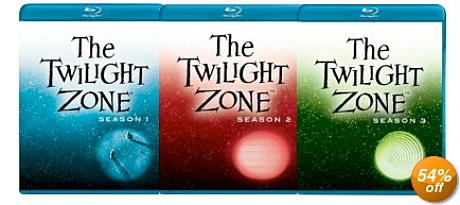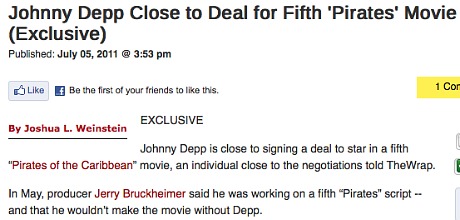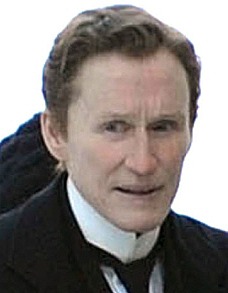If only there was a liberal with balls occupying the White House. If only President Obama would call a spade a spade and label Congressional righties as the looney and fanatical faction they’ve become. If a tough, principled Democrat was to run against Obama in the primaries with a proposal of really getting tough on the financial elite, I would volunteer for him/her 20 hours a week. If Obama loses the 2012 election over voters’ conviction that he hasn’t even tried to bring justice to the Wall Street bad guys, he’ll have no one to blame but himself. He talks good, but he’s a softie.
“What haunts the Obama administration is what still haunts the country — the stunning lack of accountability for the greed and misdeeds that brought America to its gravest financial crisis since the Great Depression,” writes New York‘s Frank Rich. “There has been no legal, moral, or financial reckoning for the most powerful wrongdoers. Nor have there been meaningful reforms that might prevent a repeat catastrophe. Time may heal most wounds, but not these. Chronic unemployment remains a constant, painful reminder of the havoc inflicted on the bust’s innocent victims.
“As the ghost of Hamlet’s father might have it, America will be stalked by its foul and unresolved crimes until they ‘are burnt and purged away.’
“After the 1929 crash, and thanks in part to the legendary Ferdinand Pecora’s fierce thirties Senate hearings, America gained a Securities and Exchange Commission, the Public Utility Holding Company Act, and the Glass-Steagall Act to forestall a rerun. After the savings-and-loan debacle of the eighties, some 800 miscreants went to jail. But those who ran the central financial institutions of our fiasco escaped culpability (as did most of the institutions).
“As the indefatigable Matt Taibbi has tabulated, law enforcement on Obama’s watch rounded up 393,000 illegal immigrants last year and zero bankers. The Justice Department’s bally¬≠hooed Operation Broken Trust has broken still more trust by chasing mainly low-echelon, one-off Madoff wannabes. You almost have to feel sorry for the era’s designated Goldman scapegoat, 32-year-old flunky ‘Fabulous Fab’ Fabrice Tourre, who may yet take the fall for everyone else. It’s as if the Watergate investigation were halted after the cops nabbed the nudniks who did the break-in.
Obama’s big political problem “is that a far larger share of the American electorate views him as a tool of the very fat-cat elite that despises him. Given Obama’s humble background, his history as a mostly liberal Democrat, and his famous resume as a community organizer, this would also seem a reach. But the president has no one to blame but himself for the caricature. While he has never lusted after money — he’d rather get his hands on the latest novel by Morrison or Franzen — he is an elitist of a certain sort. For all the lurid fantasies of the birthers, the dirty secret of Obama’s background is that the values of Harvard, not of Kenya or Indonesia or Bill Ayers, have most colored his governing style. He falls hard for the best and the brightest white guys.
“Obama arrives at his reelection campaign not merely with a weak performance on Wall Street crime enforcement and reform but also with a scattershot record (at best) of focusing on the main concern of Main Street: joblessness. One is a consequence of the other. His failure to push back against the financial sector, sparing it any responsibility for the economy it tanked, empowered it to roll over his agenda with its own. He has come across as favoring the financial elite over the stranded middle class even if, in his heart of hearts, he does not.
“The central question before the nation couldn’t be clearer: Who pays? The taxpayers bailed out the elite; now it’s the elite’s turn to return the favor. Massive cuts to the safety net combined with scant sacrifice from those at the top is wrong ethically and politically. It is, in the truest sense, un-American. Obama knows this, and he hit a welcome note last week when he urged some higher corporate taxes for hedge funds and the like. But his forays in this direction are tentative and sporadic. You have to wonder why he isn’t seizing the moment to articulate and fight for the big picture instead of playing a lose-lose game of rope-a-dope with the Republicans on their budgetary turf.
“‘A nation cannot prosper long when it favors only the prosperous,’ Obama declared at his inauguration. What he said on that bright January morning is no less true or stirring now. For all his failings since, he is the only one who can make this case. There’s nothing but his own passivity to stop him from doing so — and from shaking up the administration team that, well beyond the halfway-out-the-door Geithner and his Treasury Department, has showered too many favors on the prosperous. This will mean turning on his own cadre of the liberal elite. But it’s essential if he is to call the bluff of a fake man-of-the-people like Romney. To differentiate himself from the discredited Establishment, he will have to mount the fight he has ducked for the past three years.
“The alternative is a failure of historic proportions. Those who gamed the economy to near devastation — so much so that the nation turned to an untried young leader in desperation and in hope — would once again inherit the Earth. Unless and until there’s a purging of the crimes that brought our president to his unlikely Inauguration Day, much more in America than the second term of his administration will be at stake.”






